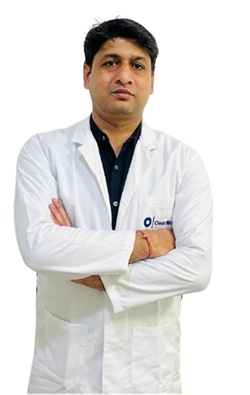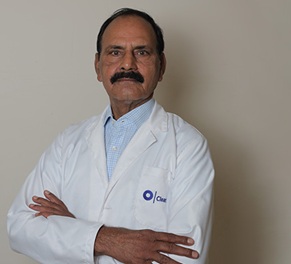How to Cure First Stage of Piles? - Know Expert Tips

Quick Summary
- The first stage of piles is curable
- Piles can relapse and go into remission depending on various factors, like nutrition and lifestyle
- There are various remedial measures available to treat piles 1st stage
Table of Contents
- What is First Stage of Piles?
- Benefits of Treating First Stage of Piles
- Treatment of Piles First Stage
- Lifestyle Changes for First Stage of Piles
- Dietary Modification for Piles First Stage
- Exercise for First Stage of Piles
- Medication for First Stage of Piles
- Home Remedies for First Stage of Piles
- Takeaway
- Frequently Asked Questions
- References
The first stage of piles is curable. Piles cause severe discomfort and reduce the quality of life among many people suffering from piles.
Piles can relapse and go into remission depending on various factors, like nutrition and lifestyle. There are various remedial measures available to treat piles 1st stage. Read this blog to learn how to cure the first stage of piles.
What is First Stage of Piles?
Haemorrhoids, or piles, are swollen veins in the lower rectum or around the anus. It can develop in the lining of the rectum and anus (internal haemorrhoids) or below the skin around the anus (external haemorrhoids). Piles are classified into four grades, depending on their severity. Grade 1 piles are the mildest, while grade 4 piles are the most severe.
- The first stage of piles is grade 1 piles.
- Grade 1 piles are swollen blood vessels that bulge into the anal canal but do not prolapse or fall out of the anus.
- Piles at an early stage can be treated with lifestyle changes and over-the-counter medication. However, if lifestyle changes and medication do not work, other treatment options, such as surgery, may be considered.
- The first stage of piles is usually diagnosed based on symptoms and a physical examination by a doctor. He will examine the area around the anus and insert a gloved finger to feel for any bulging blood vessels.
- Several factors may increase the risk of developing grade 1 piles, including age, family history and obesity.


Benefits of Treating First Stage of Piles
If you're suffering from piles, you may wonder if there are any benefits to curing them early. Here are five benefits of curing the first stage of piles:
- Relief from pain and discomfort: Hemorrhoids can be extremely painful, especially if left untreated. By getting treatment early, you can avoid the pain and discomfort associated with more advanced cases of haemorrhoids.
- Prevention of further damage: If left untreated, haemorrhoids can lead to further damage to the anal area, including tearing and bleeding. Early treatment can help prevent this from happening.
- Avoidance of complications: Untreated haemorrhoids can occasionally lead to more severe complications like blood clots or infection. Curing piles 1st stage will help avoid these potential problems.
- Improves anal hygiene: When piles are present, they can make anal hygiene difficult and uncomfortable. Therefore, treating first stage piles will make cleaning the area much easier and more comfortable.
- No surgery needed: Treating piles at an early stage can prevent the need for surgery.
Treatment of Piles First Stage
The first stage of piles is easily curable. The first stage of piles goes away on its own. Home remedial measures will often ease symptoms of piles, such as bleeding and discomfort. The various methods of treating piles in 1st stage are:
- Lifestyle changes
- Dietary modifications
- Exercise
- Ayurveda treatments
- Over-the-counter medications
- Home Remedies
Lifestyle Changes for First Stage of Piles
By changing your lifestyle, you can stop piles from getting worse. The following actions can help treat piles effectively:
- Stay active: Sedentary behaviour contributes to several health issues, including piles. Therefore, maintaining a healthy digestive system requires an active lifestyle that includes exercise and eating a well-balanced diet.
- Regular bowel movements: Avoiding and treating haemorrhoids is essential since retaining stool in the rectum for an extended time can cause piles.
- Avoid eating harmful foods: To improve stool consistency and avoid staining bowel movements, a diet rich in fibre and low in fat can help prevent piles.
- Wear comfortable clothes: Even though loose clothing won't completely cure piles, it can help keep the anal area dry and clean.
- Keep yourself hydrated: Stay hydrated by increasing your water intake. It will make sure that stools pass without difficulty.
Dietary Modification for Piles First Stage
Some food items can help to cure piles at an early stage. The diet must include:
- Increase the amount of fibre in the diet by including whole grains such as barley, quinoa, brown rice, rye, oats, and legumes. So if you frequently experience constipation, consume plenty of fluids and eat a high-fibre diet.
- Be cautious and gradually increase your dietary fibre consumption because a sudden increase in fibre intake may result in diarrhoea, bloating intestinal gas, or other problems.
- Include a range of vegetables, such as bell peppers, cucumber, cauliflower, cabbage, zucchini, and others.
- Consume one serving of a root vegetable like a sweet potato, carrot, beet, turnip, etc., daily.
- Fruits like prunes, melon, pear, apple, and raspberry must be added to the diet.
Exercise for First Stage of Piles
Exercise can improve overall health, which may also help to reduce your risk of developing piles. Exercise improves circulation, which will stop piles from progressing further. You can include the following exercise for the first stage of piles:
- Deep breathing
It encourages relaxation and helps to relieve pelvic floor muscle strain.- Straighten your back and lay your hands on either side of your lower rib cage above the waist.
- Breathe deeply into your abdomen with each inhalation, allowing your belly to expand.
- Draw the navel toward the spine as you exhale.
- Repeat this for five minutes.
- Pelvic floor contraction
It helps the anal muscle to relax by strengthening the pelvic floor muscles. Follow the steps below for this exercise:- Sit or lie on your back.
- As though you were trying to stop yourself from passing gas, tighten your anal muscles.
- For five seconds, maintain this contraction.
- Take 10 seconds to unwind.
- Repeat, but only with half as much force.
- As quickly as possible, contract and release the muscles.
- Keep going as long as you can.
- Repeat this series two to four times daily.
- Cardiovascular Exercises
It includes physical activities, like brisk walking, jogging, and walking, which may promote regular, healthy bowel motions. Bear crawls, burpees, and jogging are some more cardio activities.
Exercise to Avoid During Piles
Exercises with a high impact or that are strenuous should be avoided, especially if they exert strain on the anal area. It could aggravate the symptoms and result in pain, itchiness, or bleeding. These exercises include:
- Squats,
- Sit-ups and related exercises
- Cycling,
- Horseback riding
- Weightlifting
Medication for First Stage of Piles
You can try over-the-counter medicines to get rid of piles without surgery if the home remedies or herbal treatments don't work. It includes:
- Over-the-counter medicines: Numerous over-the-counter medications are widely available, which can aid in reducing haemorrhoid-related pain, itching, and other issues. Topical steroid creams are another option for treating symptoms. Doctors frequently prescribe OTC creams as a crucial component of non-surgical piles treatment.
- Laxative: Stool softening agents can help with piles symptoms since constipation is the leading cause of piles. Psyllium, fibre supplements, etc., are some of these. These substances make stools softer and assist in increasing stool consistency.
Home Remedies for First Stage of Piles
There are some home remedies for piles that don't require surgery. These remedies can significantly reduce haemorrhoids. Before using the home remedies, the patient must visit their doctor. The successful home methods for treating the first stage of piles are listed below:
Sitz Bath: It is a therapeutic bath. A person with piles sits in shallow, relatively warm water. When done immediately after passing the stool, it works best. It improves blood flow and relieves discomfort and itching in the rectal area. Adding Epsom salt to the warm water also helps to relieve piles symptoms.
Coconut Oil: It has anti-inflammatory properties. Additionally, it possesses antibacterial and analgesic qualities that reduce pain. Constipation, one of the most prevalent causes of piles, can be relieved thanks to the laxative properties of coconut oil. With cotton, you can directly apply coconut oil to external haemorrhoids.
Olive Oil: When used topically to piles, olive oil's anti-inflammatory qualities can help reduce swelling and provide comfort.
Takeaway
Over-the-counter medicines, ayurveda, and home remedies treat the first stage of piles. If piles are identified at early stages, these treatment methods aid in the cure of piles.
If you have any queries regarding the treatment of piles, contact HexaHealth today. They offer comprehensive care services and a stress-free surgical experience at the best hospitals for the best prices.
Frequently Asked Questions
Can stage 1 piles be cured without treatment?
In some cases, stage 1 piles may resolve on their own without treatment. However, it is important to consult with a healthcare provider to determine the appropriate treatment plan.
Can lifestyle changes help treat stage 1 piles?
Yes, lifestyle changes can help treat stage 1 piles. Some lifestyle changes that may be helpful include:
- Increasing fibre intake to soften stool and reduce straining during bowel movements.
- Drinking plenty of fluids helps prevent constipation.
- Exercising regularly to improve bowel function.
- Avoiding prolonged sitting on the toilet.
- Avoiding lifting heavy objects, which can strain the rectal veins.
- Avoiding spicy or irritant foods, which can irritate the rectum and anus.
Can over-the-counter medications help treat stage 1 piles?
Over-the-counter medications, such as topical creams and ointments, may be helpful in relieving the symptoms of stage 1 piles. These medications can help reduce inflammation, swelling, and discomfort. However, it is important to consult with a healthcare provider before using any over-the-counter medications, as they may not be suitable for everyone.
Can home remedies help treat stage 1 piles?
Some home remedies may be helpful in relieving the symptoms of stage 1 piles. These remedies may include:
Applying a cold compress or ice pack to the affected area to reduce swelling
Sitting in a warm bath to soothe the affected area
Using a medicated pad or wipes to clean the anus after bowel movements
Applying a small amount of aloe vera gel to the affected area to reduce inflammation and irritation
Can surgery be used to treat stage 1 piles?
Surgery is generally not recommended for the treatment of stage 1 piles. In most cases, stage 1 piles can be managed with lifestyle changes and over-the-counter or home remedies. Surgery may be recommended for more severe cases of piles that do not respond to other treatments.
Can stage 1 piles progress to a more severe stage if left untreated?
In some cases, stage 1 piles may progress to a more severe stage if left untreated. It is better to consult your doctor to know the proper treatment for you.
Can stage 1 piles be prevented?
There are several measures that can be taken to reduce the risk of developing stage 1 piles or prevent them from worsening:
- Maintaining a healthy diet high in fibre and fluids to prevent constipation
- Exercising regularly to improve bowel function
- Avoiding prolonged sitting on the toilet
- Avoiding lifting heavy objects
- Avoiding spicy or irritant foods
Can stage 1 piles be treated during pregnancy?
Stage 1 piles are common during pregnancy, due to the increased pressure on the rectal veins from the growing uterus. Lifestyle changes and over-the-counter medications may be used to treat stage 1 piles during pregnancy. It is important to consult with a healthcare provider to determine the appropriate treatment plan, as certain medications may not be safe during pregnancy.
Can stage 1 piles recur after treatment?
In some cases, stage 1 piles may recur after treatment. To reduce the risk of recurrence, it is important to follow the recommended treatment plan and make any necessary lifestyle changes to prevent constipation and reduce strain on the rectal veins. If the piles recur, it is important to consult your doctor to know what suits you.
Last Updated on: 9 October 2023
Reviewer

Dr. Aman Priya Khanna
MBBS, DNB General Surgery, FMAS, FIAGES, FALS Bariatric, MNAMS General Surgery
13 Years Experience
Dr Aman Priya Khanna is a highly experienced and National Board–Certified Laparoscopic, GI, and Bariatric Surgeon with over 13 years of clinical expertise.
He is widely regarded as one of the best bariatric surgeons in Ahmedabad, ...View More
Author
HexaHealth Care Team
HexaHealth Care Team brings you medical content covering many important conditions, procedures falling under different medical specialities. The content published is thoroughly reviewed by our panel of qualified doctors for its accuracy and relevance.
Expert Doctors (10)
NABH Accredited Hospitals (5)
Latest Health Articles
Related Treatments



























 Open In App
Open In App